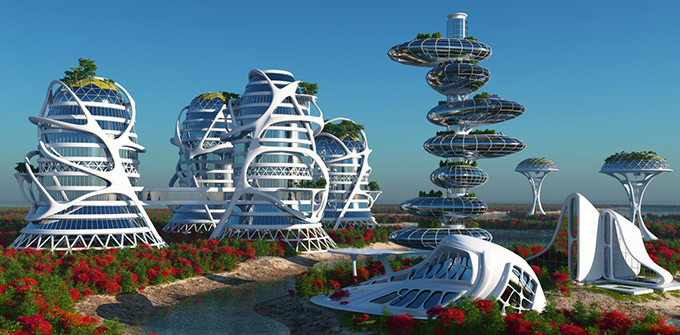
Smart technologies are becoming more popular than ever before, finding their way into modern households and businesses. But what most people don’t know is that these technologies are also being used by cities across the globe to increase their energy efficiency, reduce carbon footprint, improve safety, solve problems and improve overall productivity.
Since smart technologies rely on intelligent systems and networks, they excel at management tasks, such as running traffic lights, transportation networks and public services. The city of Amsterdam started its Smart City initiative in 2009 by launching more than 170 projects, including those responsible for handling parking lots and informing drivers about their locations and usage.
Barcelona, on the other hand, uses smart technologies to optimize and improve its bus routes by giving them the right of way and eliminating idle periods between two timetables. This leads to a decrease in fuel consumption and promotes public transport, which is relying more and more on electric and smart vehicles with greater energy efficiency.
The city of Santa Cruz in California uses intelligent systems which analyze crime statistics and help authorities predict future requirements for more police resources in a particular area. On top of that, the city is currently implementing its very first version of smart lighting system, aimed to reduce running costs and improve public and road safety.
Smart technologies can also be used to coordinate and manage local and communal services. For instance, the city of Madrid uses a specialized kind of software to optimize its network of recycling trucks but maintenance crews as well, meaning that minimal fuel, energy and working hours get wasted.
The cities of Dublin and Edinburgh had even gone one step further. By setting up programs and new regulations which require all new buildings to be fitted with energy efficient walls and double glazed windows, which greatly reduce heat losses and improve overall insulation. By eliminating heat losses, not only will the residents save money on electricity, but city officials will also get an accurate evaluation of just how much energy and heat each building needs. Which could slash overall running costs and improve the city’s energy efficiency. Meanwhile, the residents themselves are getting more educated on the importance of green technologies and how to use them correctly to improve the quality of life. Several other cities in the UK and EU are also considering giving out government glazing grants to homes, investors and contractors willing to build housing complexes equipped with double glazing windows, solar panels and other green living solutions.
As technologies improve, and new solutions emerge, it is only a question of time when smart technologies and green solutions would become a standard in modern cities and even countryside households. By switching to smart solutions, replacing some old habits with new ones and careful planning, cities all over the world will be able to improve the lives of their current residents, secure a better future for future generations and introduce a new lifestyle that could benefit both humanity and the environment
